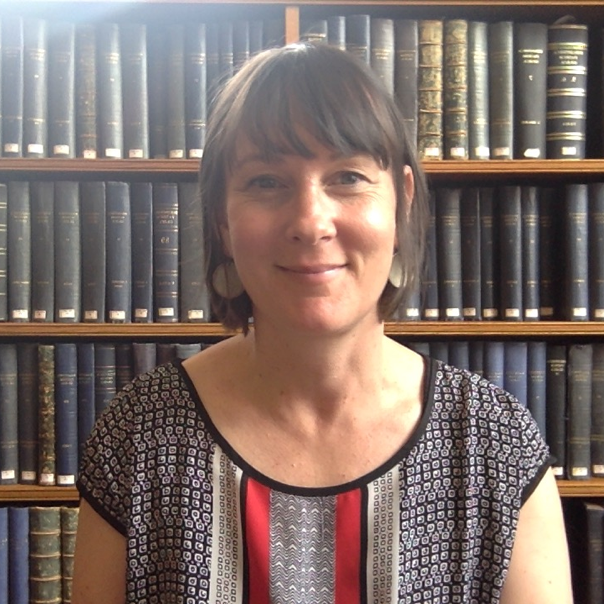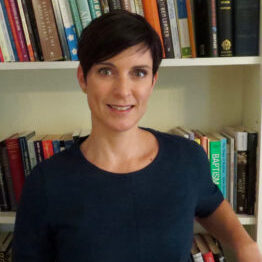Episode Transcript
[00:00:05] Speaker A: You're listening to by the well, a lectionary based podcast preaches recorded on the land of the Wurundjeri people.
Hello, everyone, I'm Fran Barber.
[00:00:18] Speaker B: And I'm Sally Douglas.
[00:00:20] Speaker A: And Sally and I are today talking about the readings for Trinity Sunday.
And in particular we're going to focus on Proverbs 8:1:4 and verses 22 to 31 and Romans 5 verses 1 to 5 and John 16, verses 12 to 15.
Now this is in some sense, is it a high festival for the church? Probably for some churches, but for others not.
I do quite like Ben Myers, who's got umpteen, what does he call them, rules tweeting the Trinity because heresy is mayor and he's got something like 70 little hashtag points about the Trinity and what to do and not to do about, talking about it, dealing with it, thinking of it. And he thinks we should abolish the day of Trinity Sunday because of the temptation or the sense that suggests that it's there simply so we have this impossible opportunity to explain it once a year. Once a year. And then we forget it.
[00:01:24] Speaker B: Yeah, well, there's some merit. I'd actually love Trinity Sunday, but I also resonate with Ben's concerns.
[00:01:30] Speaker A: Yeah, no, I agree. Like most things, it's not either or.
So we're here to help people think about it, not to explain it and the joy of it, the fullness of it and the relationality of it and all the things. And we're going to begin with Sally, who is the font of all knowledge about the first particular book, Proverbs.
And Sally, as someone who knows a lot about and thought a lot about this, it is hard to answer a question like this. But as we approach this passage today, what are some key things that people must absolutely take into account, not forget it all, keep in mind when they're parsing these verses and the nature of the female divine, how we talk about her and all the things.
[00:02:19] Speaker B: And why is the reading here?
[00:02:20] Speaker A: Why is it here?
[00:02:21] Speaker B: So I think this is a really great first question because.
Because of the way in which theological education has and biblical studies has continued for centuries, often people don't have any real knowledge about who this female divine figure is. And it's like, well, this is a weird reading to slot in here in the lectionary when it's Trinity Sunday. So I'm going to invite us all to engage with the text here in Proverbs, but also then reflect on the earliest church.
So there is this female divine figure in the Old Testament here she is in Proverbs at the very beginning. Does not wisdom call out? Does not understanding raise her voice? On the heights beside the way at the crossroads she takes her stand. So this is Proverbs 8:1 and the following verses, the first part of our reading.
This female divine figure is called Hokma in Hebrew, and it means wisdom and Sophia in Greek, which also means wisdom. A couple of things to note. She's always imaged as female in Jewish sacred texts, here in Proverbs, but also in Sirach and Baruch and the Wisdom of Solomon.
We don't know why she's present in these texts, and people have all kinds of different theories about why she's present. And we might get a chance to talk about them, but we actually don't know why. What's astonishing, though, is that she's present and she's not edited out like in a monotheistic faith we have, in a patriarchal culture, we have this female divine figure. And here in Proverbs, he's not presented just as a wise woman.
If you keep reading the passage that we have for the lecture from verse 22, it becomes really clear that she's preexistent. She is with God in the beginning.
And this whole hymn that she speaks about herself in really like it's a hymn to herself. The Lord created me at the beginning of his work. It's almost like another creation story. And the emphasis throughout it is that she has been with God from the beginning, as all things are created. And. And the Hebrew is a bit ambiguous about whether she is watching God create towards the end of this passage, or whether she is like an architect, actually creating. And different later texts interpret that in different ways. So in the Wisdom of Solomon, she is the one through whom all things are created.
And that already might be ringing a few bells of familiarity for Christians, because that's kind of. This is exactly the same language that is used of Jesus, and that's not an accident. So she's female, she's divine, she's with God in the beginning. She's somehow involved in creation, either observing it being created or creating with God. In this passage, God delights in her and she delights in humanity. So it's a very alive kind of vital imagery of God.
Now, what's astonishing, and the reason why this passage is linked together in the lectionary for Trinity Sunday, is that in the earliest church, she became the central figure for diverse Jesus communities trying to make sense of how Jesus was the God one.
Like this is such a radical notion that So I think sometimes we're too familiar with the text. We don't realize the shock of them. So earliest Christians aren't just claiming that this guy was killed by the state and then raised. They are absolutely claiming that.
[00:05:31] Speaker A: Which is scandalous.
[00:05:32] Speaker B: Which is scandalous. But then they go even more scandalous. They say this guy is God from God, like so in John's gospel, in the beginning was the Word, and the Word was with God, and the Word was God, and then the Word became flesh. So they're making extraordinary. And then that he allows self to be killed.
So as these earliest communities are kind of grasping for how to. How to give language to. We believe in one God because they're all, Most. Almost all Jewish at the start, one God, and yet God has somehow dwelt with us in flesh.
They turn to Sophia to give, like an architectural framework for speaking of that. So we have that in the prologue, in John's Gospel, Jesus is imaged as.
And I have. I'm not the expert, only expert. But I've written extensively about it. So you can.
You can go and follow up these resources. We don't have time to track them all. Yeah, you're gonna ask.
[00:06:25] Speaker A: Oh, I was just wanting to ask something more specifically about the relationship with logos.
[00:06:30] Speaker B: Yes.
[00:06:30] Speaker A: Is that simply. I don't mean simply. No, no, I mean it's another Greek term.
[00:06:35] Speaker B: It is. So why is the word logos used in the prologue and not Sophia? That's another debate which I again discuss in my work. There are different views about this. I'm a bit. When we don't know, we don't know.
Tend to be a bit agnostic. Martin Scott, who's written an entire book just on John's Gospel and the way in which Jesus is imaged as Sophia throughout, he suggests that possibly the author of the prologue or the authors. It could be a collective thing because Jesus is incarnate among us as a man chooses the Logos language rather than the Sophia language. I mean, I think I'm quite attracted to that interpretation. But others argue it's just a patriarchal way of sublimating that this is Sophia. That could also be true. We don't know. But in Matthew's Gospel, Jesus image to Sophia. Paul calls Jesus the wisdom of God, Sophia of God. In 1 Corinthians, there's these hymn fragments in Colossians, the Colossians hymn, and in Hebrews as well. Again, so different communities all imaging Jesus as Sophia. And you can.
[00:07:35] Speaker A: Sorry to interrupt. Which we haven't highlighted explicitly.
Well, I certainly haven't as a preacher. I apologise.
[00:07:42] Speaker B: No, it's weird.
[00:07:43] Speaker A: Yeah.
[00:07:44] Speaker B: So I had study so deeply in as a candidate, like different, like deep New Testament studies, and it just didn't come up. It was only when I did my doctoral research and I. And I'd heard like a tiny passing reference to her and I'm like, oh, this is probably some loopy, loopy someone's making like there's probably two verses and someone's just blown it out of proportion. So I was utterly astonished when I came to the text went, oh my goodness. This, this is the. It's everywhere. And James Dunn, who's a really important solid biblical scholar, I just want to read this quote from him. So may mainstream New Testament scholar says the wisdom of God that Jesus was very early on described in terms drawn from pre Christian speculation. So from Jewish speculation concerning divine wisdom. Sophia Hochma is the nearest thing we have to consensus in this whole area of early Christology, the dominant image, but it gets suppressed all the time as well. So biblical scholars do well. And I'm not saying that James Dunn did this intentionally, but he calls Sophia divine wisdom, which she is. But if you don't know that divine wisdom is always female, then how are you gonna get that like you just. So there's an acknowledgement and a sublimation at the same time.
So as these earliest communities were seeking to make sense of how Jesus could be the gold one, this treasure from their Jewish tradition became incredibly important. So that's why we have this reading this week.
So if this is new to you, you might wanna.
There's a long podcast where I talk all about the details, the Nomad podcast. If you don't want to read a book.
[00:09:21] Speaker A: Your book.
[00:09:21] Speaker B: Yeah, you can read my book or you can read other books too. But there's. My latest book is an accessible, popular level book about this evidence and what it might mean for the church today.
It is profound. Like this. Not my book, my book might be. But this area of theology is profound that these earliest Jesus communities. And what I think is really interesting is Justin Martyr, who's a early church writer writing in the 130s to the 160s.
When he's writing to a Greek audience or he writes his letter to the emperor, he describes Jesus as Logos and when he's writing to a Jewish audience, he describes Jesus as Sophia.
Really interesting. Both meaning the same thing. Like he both. He refers to Proverbs as the, the.
The biblical and theological backbone for this. But he's speaking to audiences who are less and more familiar with this imagery. So that's why she's here.
And that's how Jesus imaged as her. And it is foundational for Matthew's Gospel and John's Gospel in particular, and for Paul and other early church writers.
[00:10:25] Speaker A: When I was reading your book, I was also really struck by the conversation about the. When I say the. The type of woman who's depicted.
[00:10:34] Speaker B: Yes. Yeah, yeah, yeah.
[00:10:35] Speaker A: I mean, not the submissive, not the quiet. Not the.
[00:10:38] Speaker B: Not really mothering either.
[00:10:39] Speaker A: Not mothering, but I love the words you used, I think was loud, public.
And what was the other one?
Demonstrative.
[00:10:48] Speaker B: Yeah. And she is.
[00:10:50] Speaker A: I think it's not quite busy.
[00:10:51] Speaker B: No. So in the opening, if you read the beginning of Proverbs, you'll see her again. She's at the. In the first chapter, and she's at the street calling to people, which is the domain of men, saying, come to me. Listen to me.
It's so interesting that she's presented in this way. There's a tiny reference to her being like a mother in Sirach, but mostly she is imaged as this woman, the fount of wisdom and knowledge and life. Like, all who come to me receive life. These are profound images. And then in Proverbs, if you keep reading in Proverbs 9, she's the one who prepares the feast.
[00:11:22] Speaker A: I was just gonna say. Well, she's an architect.
[00:11:25] Speaker B: Yes, she's an architect. Yes.
[00:11:26] Speaker A: I mean, you can't say, well, she's depicted as a homemaking, cooking. No, no. Like. Well, she's the Jesus figure presiding at the supper.
[00:11:32] Speaker B: That's right.
[00:11:33] Speaker A: The risk of, you know.
[00:11:34] Speaker B: No, you're absolutely right. And she offers the bread and the wine.
And so in Proverbs 9, and then in sir, she has the bread of learning, and she actually says in Sirach, come and eat all my fruits. Like, it's clear that John's Gospel is deeply in dialogue with Sirach. And interestingly, in Sirach, she says, and you'll hunger for more. And in John, Jesus says, come to me and you'll be satisfied. So it says. I think my sense of the text is that the proclamation is that now that sea fear has dwelt with us in person, in Jesus Christ, full. The fullness is among us, and the full satisfaction is accessible now. So it's incredibly. I mean, this might be. If you've never heard of this, you really might think you've tuned into Lupi Land show. But this is in the biblical text and extraordinarily important for the early church and it just gets suppressed more and more over centuries.
[00:12:27] Speaker A: Well, what you're highlighting with great energy is what one other little principle of Ben Myers, that the Trinity itself is a witness to the Scriptures, Old Testament and new and of their continuity.
[00:12:43] Speaker B: Yes.
[00:12:43] Speaker A: And it provides, he says, well, language, but also process, proceed like it's a. It's not just about language. It's about being and procedure kind of language he uses for it.
But yes, that it, that it's tying together the traditions and trying to say, some say, what is truthful, as truthful as we can, that is coherent and life giving.
[00:13:07] Speaker B: Absolutely. And it's grounded in experience.
[00:13:10] Speaker A: Yes.
[00:13:12] Speaker B: Go to New Testament.
[00:13:18] Speaker A: So which takes us to, I think the Gospel of John for today.
[00:13:22] Speaker B: Yeah. And we can do. We can do a little bit of both, I think.
[00:13:25] Speaker A: Okay. Where would you like to.
[00:13:26] Speaker B: Well, just briefly on Romans. So understand.
I think I understand why the lectionary composers have chosen Romans because it does speak of the persons of the Trinity.
So through Jesus Christ we are drawn into this relationship with God and, and the Holies. I mean, it's got this beautiful imagery of the Holy Spirit being poured into our hearts.
And I'll talk. I want to say a bit more about that in a second, but before we do, I just have to say if you have this passage in church, I think you have to do a disclaimer right at the outset because it talks about how suffering produces endurance and then character and hope. That does not always happen.
[00:14:05] Speaker A: No. Well, wouldn't it be true enough? It doesn't. But I was just thinking often, usually the suffering referred to in the gospel like this is suffering that comes particularly from having being a witness to Christ.
[00:14:18] Speaker B: Possibly not suffering in general, but unfortunately, you know, that whole. What doesn't kill you, make you stronger? It's like, oh my goodness. Actually, sometimes it does kill people.
[00:14:27] Speaker A: Absolutely, it does.
[00:14:28] Speaker B: So if the passage is being read just to. At the very outset of a reflection, if you just to name that, that this is. Yes, as you said, it's possibly Paul's, possibly referring to suffering as a witness, but also even in that, like we. Sometimes it doesn't produce these things. And, and when it does, it's not through our own effort, it's through the grace of God.
But, but both in. So now that we've qualified that both here and there are multiple other passages in the New Testament in the epistles, but also in. As we see in John, I think what these writers are pointing to is experience, Fran. They are experiencing the Spirit being poured out in them and they are Experiencing the ongoing presence of the risen Jesus. So it's not just that Peter and the beloved disciple and Mary Magdalene and others and the couple on the way to a mates that they experience the risen Jesus. This is an ongoing presence in these Jesus communities where their hearts are being transformed.
And it's almost as though, because they're almost all Jewish, it's monotheistic, that they have no other choice but to begin speaking of God in this way, because the experiences are so profound of the one that we. We knew witnessing among us, healing and teaching and challenging us and feeding us, is continuing to heal and teach and challenge and feed us through the power of the Spirit. And so this incredibly tender language of the Holy Spirit being poured into our hearts is used because it's pointing towards these ongoing. Not just that Paul's having, but that we're all.
[00:15:59] Speaker A: I was just gonna say. I mean, this is the Prisca pointing out the obvious, which seems to be the case a lot with preaching. But what you've just described, that dynamic, that action, that consciousness, is what we're. I mean, we're still doing that. Exactly what we're doing. And when we forget we're doing that, we become.
It becomes dead and flat.
[00:16:19] Speaker B: Correct.
[00:16:19] Speaker A: And we wonder what we're all there for except to keep the building open or something. But, you know, where is the movement of the Spirit here? What? And then we use this language. I mean. Yeah, I think people, we can be othering the text in that sense of going, well, that's what they were doing. Well, hello.
[00:16:37] Speaker B: Oh, I. I completely, completely agree with you. And I think. And in John we see the same thing. So John, in John, in this long farewell speech we've already heard quite a bit from. Yeah. Extraordinary imagery of, you know, the God of the universe making home with us. Like the. That is.
[00:16:52] Speaker A: Well, that's the other thing. Sorry to go back to Proverbs, but she's expansive and intimate.
[00:16:58] Speaker B: Exactly.
[00:16:58] Speaker A: You know, which is who God is for us.
[00:17:00] Speaker B: That's right, yeah. So in the wisdom of Solomon, she.
All things were infused with her energy. She brings about all things, orders all things well, and yet she makes homes in our hearts. It's exactly the same movement. Exactly.
[00:17:15] Speaker A: So this John. I mean, this passage in John, so brief, like it's three verses, but it is what the Trinity is.
[00:17:21] Speaker B: Yeah. So read it. Do you want to read it out?
[00:17:23] Speaker A: I still have many things to say to you, but you cannot bear them now. I think that when the spirit of truth comes, he will guide you into all the truth, for he will not speak on his own, but will speak whatever he hears. And he will declare to you the things that are to come. He will glorify me because he will take what is mine and declare it to you. And all that the Father has is mine. For this reason I said that he will take what is mine and declare it to you.
[00:17:50] Speaker B: So it's absolute conviction that the Spirit continues to, like, draw us into truth.
And the flip side of that is cut away the lies like, and I really love that. And I'm thinking about our culture right now. I mean, there are lies in every culture. But it feels like our culture is driven, like secular consumerist culture, driven by the lie that you're not enough and that you don't have enough.
And so.
And there isn't enough. Exactly. Where if we allow the God of Jesus Christ to come to us, who says, come to me all you who weary and who says, I know the hairs on your head, and he says, I want to make home with you and who the Spirit will be dwelling with you, all of those lies are disrupted. It's like I keep imaging the Spirit as the advocate, sometimes with a megaphone or with a hacksaw, like getting, getting us free from the lies that we get embedded in.
[00:18:40] Speaker A: One of the things I mentioned in the last Pop Card episode I was in here was when, when stuck with the text, do as Anacata Florence suggested, which is you preach the verbs. So you so. And when, with the last John passage I was looking at when you do that, I haven't done it with this one, so I have to be quick. But they're words like believe, love, God sent. No, believe. No. They're incredibly action filled.
[00:19:03] Speaker B: Yes.
[00:19:04] Speaker A: They sound abstract. You could say. Oh well, it's very. Well, it's actually not. It's about being and not non being. And when you were saying, you know, the popular narrative, not enough actually what really struck me, I took the verbs out and they were all like that. And they're like that here. Glorify me, I will declare to you. And so on, is that we live in fear of the opposites of those things all the time.
[00:19:26] Speaker B: Absolutely.
[00:19:27] Speaker A: So God is there using and being and acting these things and calling us into that. And actually we spend most of our time worried we're not enough. Worried we will be rejected.
[00:19:37] Speaker B: That's right. Worried we're not in that we don't.
[00:19:39] Speaker A: Believe the right way or whatever that is. Anyway, that really broken open the liveliness of, of the text for me this year.
[00:19:48] Speaker B: Yeah, that's beautiful. And I think that the dynamism in the text and in the whole of Christian faith, it is not actually a faith that is based on agreeing with a set of tenets. It's a faith about according to this dynamic relationship.
One last thing I'd love to say about the Trinity that I've continued to be thinking about and.
And writing about is that if. And I'm talking theologically here, if we at a theological level believe that we are made in the image of God. So I'm not talking about literalist creation story stuff, but that. That claim in the first creation story we made in the image of God and God within. God's self is in community, three persons and yet one. What does that tell us about what we are intended to live into? It means we're intended to be ourselves, our own person, to have our boundaries and integrity and to acknowledge our particular charisms from God, our gifts from God and our weaknesses that need hacking off and, you know, challenging and so on.
But we're also called into communities of love, of giving and receiving love. And I feel like so often we're one or the other, we kind of lose ourselves in the community. Or we say, stop, stay so cut off that we're not in community. Like, we all tend to go one way or the other.
[00:21:07] Speaker A: So maybe my last thing I'd like to say is when people, Preachers are talking about in the Trinity, but also every Sunday, the Eucharist is the place, like when we pray as we do Thanksgiving. It is about God in our bodies and the. In us and through us.
[00:21:22] Speaker B: Yes.
[00:21:23] Speaker A: And. And it's. It's about. It's not just stuff we find out about this process, but, you know, our bodies are transformed.
[00:21:32] Speaker B: Yeah.
[00:21:33] Speaker A: And into God's body.
And the ethic of being around that is love.
[00:21:37] Speaker B: It is. And do you know what I love about what has been really striking me recently is it embodies the truth that cuts through the lie. There is enough.
There's enough bread. There's some. And guess what? You've got a place in the circle. There's a place for you.
[00:21:52] Speaker A: Yeah. And that's Rublev's icon, which you can never overuse with this, you know, in this. Well, ever.
But I was gonna go back to the thing about love. What was I gonna say?
Oh, that's right. So there is that dynamic of love we've talked about. And that, for John, is particularly pronounced. But it's not just for our own sake, which is glorious and fabulous, but in John, it's for that. The world may believe.
[00:22:17] Speaker B: Amen.
[00:22:17] Speaker A: That God sent Jesus.
[00:22:20] Speaker B: Yeah.
[00:22:20] Speaker A: So there's this sort of incredible expansiveness.
[00:22:24] Speaker B: There is. And then I think it always leads to the question of, would people notice love in us, like just in our normal interactions, are they noticing that love cascading out of us that is vulnerable.
[00:22:36] Speaker A: And fragile and imperfect, but actually profoundly powerful?
[00:22:40] Speaker B: Yeah.
By the well is brought to you by Pilgrim Theological College and the Uniting Church in Australia. It's produced by Adrian Jackson.
[00:22:53] Speaker A: Thanks for listening.





